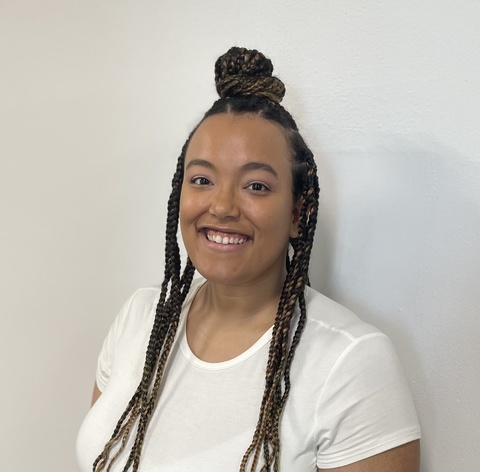
Lexi Bibbs says that she is very local, born and raised in Cedar Rapids, Iowa. In school growing up, she was active in mock trial, show choir, musical theatre, regular theatre, dance, gymnastics, and cheerleading. “It was a lot,” she says. While it is hard for her to find time to perform as an adult in college, “I still sing in the car,” she laughs.
Criminology was not her first career plan. Aptitude tests in school all suggested the same two careers for her: actress or coroner. She went to science camp and considered studying medicine. Trying to understand violent crime intrigued her as she watched “Criminal Minds” on TV.
Lexi studied psychology and criminology at the University of Northern Iowa but wanted to do something investigative. She wanted to study violent crime. She took the LSAT and qualified for law school but that didn’t feel right, and she took time off to become a 911 emergency dispatcher for Cedar Rapids. She enjoyed the job, but the environment wasn’t good for her, alone in a dark room hearing people at their worst and never knowing what happened to them. She missed being around people and took a job in the Cedar Rapids Library but still missed school. Her family often joked that she would be in school for life. She says that while many people can never imagine going back to school, “I can never imagine leaving it.”
Graduate programs in psychology weren’t the right fit. She wanted to understand psychology but specifically to investigate criminal behavior. Then she chanced upon the new Criminology PhD program right down the road in Iowa City. “It was everything I wanted in one place,” she says. The program covers research in crime, law, and social control, and having sociology in the department helps too.
The emergency dispatcher job gave her the idea for a current research project on resilience. One young man called in to calmly describe how he stabbed his father after an argument. Another person called for help finding the access panel to their attic. People respond so differently to the events in their lives. Why do some people recover from childhood trauma that ruins the lives of others from similar backgrounds? A combination of underlying tendencies and a triggering event could explain it.
Lexi says that she loves everything about the new criminology program and the professors she has come to know. Meg Rogers became more like a friend as they worked together teaching undergraduate classes. James Wo challenged her to conduct independent research and write her first real research paper. Alison Bianchi motivated her to develop a research grant proposal. “It has been terrifying and great,” she says.
Lexi Bibbs has discovered that becoming a professor is the best way to never leave school.